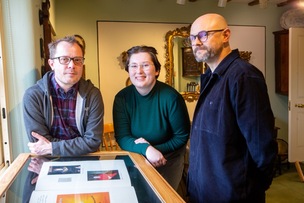MORE than £6m is being ploughed into transforming cancer services to speed up the diagnosis times.
The national funding, from the NHS England national cancer transformation fund, will benefit patients in Barnsley and across South Yorkshire.
It has been secured by the South Yorkshire, Bassetlaw and North Derbyshire Cancer Alliance and totals £6.4m.
The money will help patients get seen faster, have faster access to diagnostic testing and find out earlier whether or not they have cancer, improving their chances of survival and quality of life.
Hospitals and clinical commissioning groups are in the process of developing proposals to improve how patients access services and new ways of treating patients, leading to earlier diagnosis.
The funding will help other areas of the health and care system, such as GP practices, to deliver the changes. It will also support other projects, such as increasing awareness of cancer and the screening tests available to people, implementing more effective and less intrusive testing for bowel cancer and educating GPs and practice nurses about early diagnosis.
In addition, the alliance has been awarded money to improve people’s experiences of living with cancer. The project is part-funded by Macmillan Cancer Support.
The money allocated to support the Macmillan Living With And Beyond Cancer Programme will provide better communication between healthcare professionals who look after patients in hospital, GP practices and the local community and will mean their care is more co-ordinated.
Julia Jessop, South Yorkshire, Bassetlaw and North Derbyshire Cancer Alliance Programme Director, said: “This is great news for patients, identifying and treating cancers early can save lives. Increasing cancer awareness and educating the public about screening and early symptoms is a key priority and this funding will enable us to do so effectively.
“We will be sharing our findings as well as learning from other areas who have led on this important work. This will give us the opportunity to work together across health and social care services which will ultimately increase the number of people who survive cancer and improve quality of life for patients.”




























